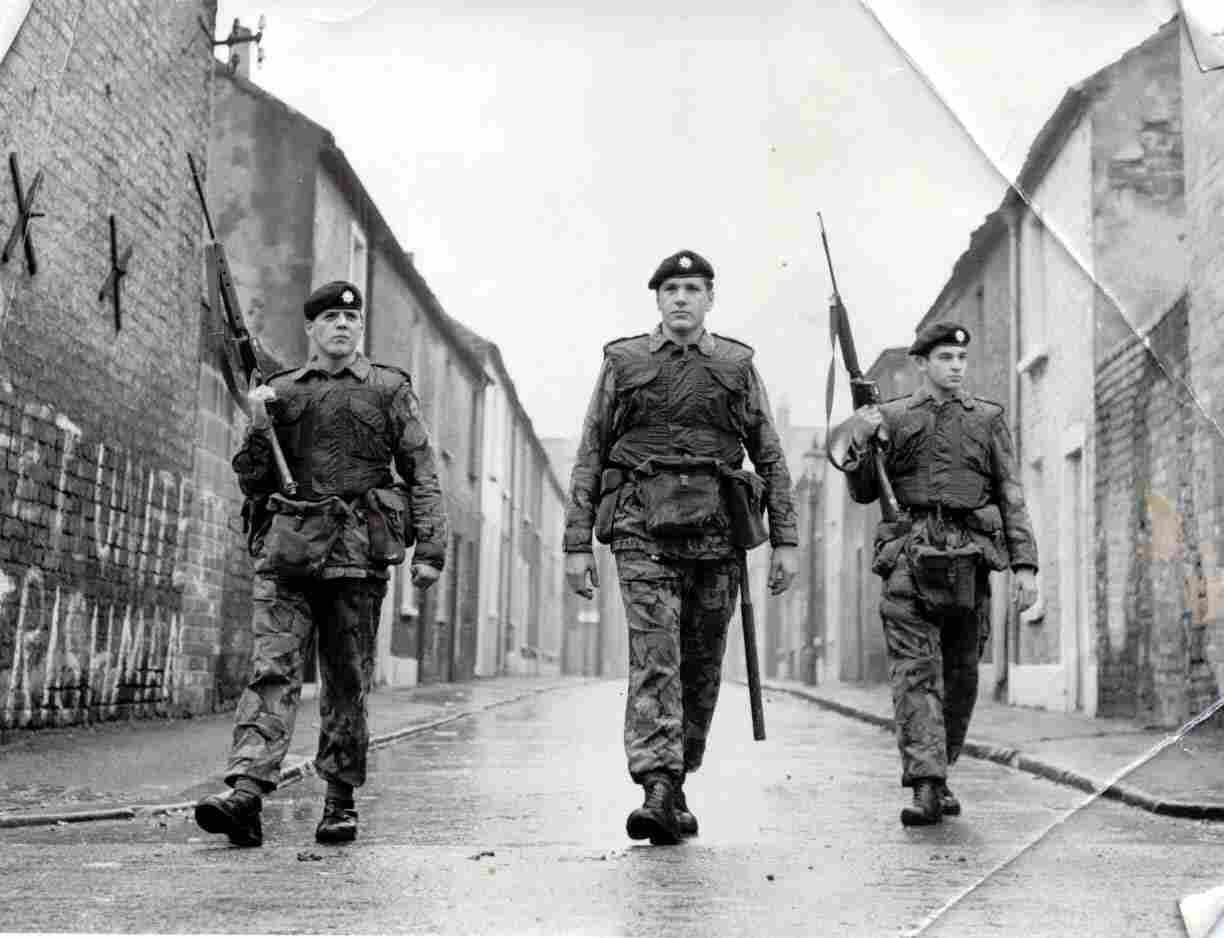
The British government has been accused of deliberately withholding evidence from the Bloody Sunday Inquiry that shows their senior military officers were demanding to shoot ‘rioters’ and ‘mobs’ before and after the massacre.
Thirteen people were shot dead while attending a civil rights rally on Bloody Sunday and a 14th victim, John Johnston, died later from his injuries. All were innocent civilians and unarmed.
An inquiry was set up in 1998 after the first inquiry, set up under Lord Widgery in 1972, was exposed as a whitewash.
This week it emerged that Lt Colonel Michael Hicks, Commander of the 1st Battalion of the Coldstream Guards in Derry, asked to have military shooting rules “redrawn” so that rioters and anyone “who has not halted when called to do so” could be fired on.
Documents from the National Archives show that Hicks insisted rioters should be shot as they would in any other “colonial-type situation”, according to a report in the Belfast Telegraph.
The letters were written between October 1971 and February 1972 and widely circulated to various British Army HQs and high-ranking officers.
The files also reveal that British soldiers were breaking shooting rules “almost daily” leading up to and just after Bloody Sunday as a result of “unwritten agreements” and “verbal orders” from headquarters.
And three weeks after the massacre, on February 19, 1972, Hicks demanded to have the explicit freedom to use live rounds as rubber bullets had “too short a range”.
However, it is understood the documents were never handed over to the Saville Inquiry for consideration and high-ranking officers were cleared of any wrongdoing.
The British Army’s top brass were exonerated by the inquiry, even after a military memo emerged calling for the shooting of “selected ringleaders”.
Lord Saville dismissed any suggestion the shooting of rioters was premeditated, insisting “this idea was not adopted”.
A number of critical files are still being withheld and kept secret by the British Ministry of Defence, although one is described as being “misplaced while on loan to government department”.
A lone soldier, known as Soldier F, is charged with two murders and five attempted murders on Bloody Sunday. A recent hearing into his prosecution heard that the British government has ‘hundreds of thousands of pages’ that could be relevant to his case.
Chair of the Bloody Sunday Trust, Tony Doherty, whose father Patrick was murdered, said it is important that people continue to “excavate the truth underlying Britain’s dirty way in Ireland.”
He said: “What is being proposed in these discovered statements is a blurring of the lines between engaging gunmen and killing civilians.
“It is clear from the Ballymurphy Massacre inquest, in particular, that covering over the murder of innocent people was the British Army’s stock in trade.
“Hundreds of families have now been left on a limb, often waiting more than 50 years for basic justice, which may now never come as a result of the recent ‘legacy’ legislation which is now in law, but must continue to be opposed.”
Kate Nash whose brother William was killed and father Alex was seriously injured on Bloody Sunday said she was “not surprised” these files didn’t appear before the Saville Inquiry.
She said: “These documents only prove what we’ve known for many years — many more officers should have been prosecuted with their ordinary soldiers.
“They broke the rules and took lives. There’s never been any prosecutions, a wee handful barely noticed done a short spell and back into the Army.”
Civil Rights veteran Eamonn McCann described the files as “hugely important, dramatic” and “ominous”.
He referred to British Army General Robert Ford who travelled to Derry and took up position at the edge of the Bogside, shouting “go on the Paras!”, as they charged through a barbed-wire barricade towards Rossville Street.
“It is clear from the documents that you now have that that wasn’t an outburst by an angry senior officer, what he was expressing was the settled policy of the British military in the north,” Mr McCann said.
“We can take it as certain that that policy wasn’t drawn up or enacted without the involvement or approval of political leaders at the time.”
* Meanwhile, a former British soldier convicted of the manslaughter of an innocent civilian at a British Army border checkpoint in Aughnacloy, County Tyrone has abandoned a legal bid to overturn his conviction.
Earlier this year, David Holden received a suspended three-year sentence for killing Mr McAnespie, who was shot in the back on his was to a GAA match in February 1988.
Holden was the first ex-British soldier to be found guilty of a conflict-era offence in three decades, although he escaped a custodial sentence. An attempt to have his conviction overturned had been due to begin at the Court of Appeal in Belfast earlier this week.
![[Irish Republican News]](https://republican-news.org/graphics/title_gifs/rn.gif)
![[Irish Republican News]](https://republican-news.org/graphics/title_gifs/harp.gif)

